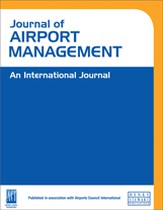Security lapses in airport management: The Fort Lauderdale case
Abstract
Communications is an integral component of prudent management in the aviation industry in both safety and security. The latter has proved to be a significant concern in the context of airports, where acts of violence have been perpetrated in terminal buildings. The security risks faced by airports took a bizarre turn when, in January 2017, a mentally deranged passenger who had arrived from Alaska at Terminal 2 of Fort-Lauderdale Hollywood International Airport carried out a mass shooting at the baggage claim area, where arriving passengers were waiting for their baggage to arrive on the carousel. Five people were killed while six others were injured in the shooting. The unfortunate event could have been effectively prevented by the authorities involved by proactive management, had they looked actively for the identification of safety risks through the analysis of the airport’s activities, particularly as they had known that the perpetrator, who had a history of mental illness and depression, had declared in the security check point in Alaska that he was carrying a gun in his checked baggage. The authorities failed to advise the destination airport of this fact, which enabled the killer to clear his bag, zip it open and unleash a barrage of gunfire on the unsuspecting passengers and others in the baggage claim area. This paper examines, through the Fort Lauderdale case, air law as a management tool in airport management and advises airport managers of the compelling importance of applying real-time normal operations to identify future problems. It also establishes that the application of trends to possible scenarios would logically lead to predictive or anticipatory intelligence, which in turn would ensure prudent airport management.
The full article is available to subscribers to the journal.
Author's Biography
Ruwantissa Abeyratne has worked in the field of aviation law and management for 34 years. He is currently President/CEO of Global Aviation Consultancies Inc. and Senior Associate, Air Law and Policy at Aviation Strategies International, both of which are consultancies headquartered in Montreal. At retirement from the International Civil Aviation Organization after 23 years of service at various senior positions in air transport and air law, Dr Abeyratne was Coordinator, Air Transport Programmes as well as Senior Legal Officer, heading the Treaty Office of ICAO. He also advised states on their registration and depository obligations with regard to international treaties and their adherence thereto and was General Counsel for ICAO staff members. Prior to his service at ICAO, Dr Abeyratne served the airline at Airlanka for eight years as Chief Coordinator and Head of International Relations and Insurance. Dr Abeyratne’s degrees include doctor of civil laws (DCL) from McGill University, doctor of philosophy (PhD) from the University of Colombo, master of laws (LLM) from Monash University, Victoria, Australia and bachelor of laws (LLB) from the University of Colombo. Dr Abeyratne is the author of 30 books and 420 papers in academic and professional journals and edited volumes. His professional reputation rests largely on work in aerospace law, diplomacy and economics. Dr Abeyratne’s current academic research is focused on air transport economics and aviation and climate change. Dr Abeyratne taught at graduate level for 22 years in the field of international law and relations and public policy. He is currently visiting professor at McGill University, teaching aviation law and policy at graduate level. He is a fellow of both the Royal Aeronautical Society and the Chartered Institute of Logistics and Transport and a member of the International Trade Law and Space Law Committees of the International Law Association. Dr Abeyratne is also a member of editorial boards of several international law journals.
